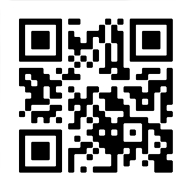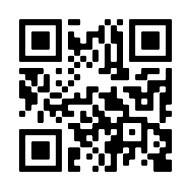Southern Dialects: The Warm & Melodic Voices of the South
From the slow, melodic drawl of Georgia to the twangy speech of Texas, Southern dialects are some of the most recognizable and charming varieties of American English. Rooted in tradition and shaped by history, Southern speech patterns reflect a culture known for hospitality, storytelling, and deep connections to its past.
Whether you’ve heard phrases like “y’all,” “fixin’ to,” or “bless your heart,” there’s no denying that Southern English has a personality all its own. You may have already noticed that from our previous blog about 10 Words You’ll Pronounce Differently Around the U.S. Let’s explore the richness of Southern dialects and their impact on American English in this part of our series on Discovering U.S. Regional Dialects.
Hospitality & Warmth
The Southern dialects of the United States, spoken in states like Texas, Georgia, Alabama, Mississippi, Louisiana, Florida, and the Carolinas, are some of the most distinctive and recognizable in American English.
Known for their rich, melodic tones and charming expressions, Southern dialects reflect the South’s history, culture, immigrant influence, and deeply rooted traditions of warm and welcoming hospitality.
Key Features of Southern Dialects
Pronunciation
- Drawl: Southern speakers often elongate vowels, turning “pen” into “peeyin” or “fine” into “fahhn.”
- Glide deletion: In words like “tired” or “fire,” the second part of the diphthong is often dropped, sounding like “tard” or “far.”
- Dropped final “g”: Words ending in “-ing” often lose the “g” (e.g., “runnin’,” “fixin’”).
Grammar
- Double modals: Combining modal verbs for politeness or possibility (e.g., “I might could help you”).
- Y’all: A contraction of “you all,” used as the second-person plural pronoun.
- Ain’t: A versatile word used in place of “isn’t,” “aren’t,” or “haven’t.”
Vocabulary
Unique terms and expressions often reflect Southern hospitality and agrarian roots:
- “Bless your heart” – Can mean sympathy or subtle criticism, depending on tone.
- “Fixin’ to” – Getting ready to do something.
- “Buggy” – Shopping cart.
- “Coke” – Used to refer to any carbonated soft drink.
Regional Variations in Southern Dialects
Deep South Dialect (Georgia, Alabama, Mississippi)
- Strong drawl with heavy use of idiomatic expressions.
- Notable phrases:
- “It’s hotter than a June bride in a feather bed” – It’s very hot.
- “Hush your mouth” – A playful way of telling someone to stop talking.
Appalachian South (Kentucky, Tennessee, West Virginia)
- Distinct grammar with a heavy influence from Scots-Irish English.
- Keep an eye out for the Appalachian Dialect blog in this series. We’ll update this text with a link once it’s published.
- Common phrases:
- “I’m a-fixin’ to” – I’m about to do something.
- “Holler” – A valley or small community.
Coastal South (Louisiana, South Carolina)
- Unique blend of French, Creole, and African American Vernacular English influences.
- Notable terms:
- “Lagniappe” – A little extra, often used in Louisiana.
- “Gullah” – Refers to both the language and culture of African Americans in coastal South Carolina and Georgia.
- “Cher” – A term of endearment similar to dear or sweetheart.
- “Neutral ground” – The median strip on a street.
- “Pass a good time” – To have fun.
Texan Dialect
- Combines Southern drawl with a cowboy flair.
- Popular words and phrases:
- “All hat and no cattle” – Someone who talks big but lacks substance.
- “Y’all” – A group of people, as in “you all”.
- “Howdy” – A friendly greeting.
- “Yonder” – Texans use this word to indicate a far off place.
- “Big as Dallas” – Something very noticeable or obvious.
- “Holler” – Get in touch, as in “I’ll holler at ya later.”
- “Gonna” & “Wanna” – Going to, and want to, respectively, as in “What’re y’all gonna wanna do later?”

Common Southern Phrases
- “Y’all come back now, ya hear?” – A warm invitation to return.
- “I declare!” – An exclamation of surprise or disbelief.
- “Cut the lights on” – Turn on the lights.
- “Can’t never could” – A motivational saying meaning you won’t succeed if you don’t try.
- “He’s madder than a wet hen” – He’s very angry…like mad mad.
Florida Dialects: A Unique Blend of Southern, Coastal, & Latin Influences
In case you thought we forgot about Florida, don’t worry. It’s a world in and of itself and deserves its own section.
Florida’s dialects stand apart from the rest of the Southern United States, blending elements of traditional Southern speech, coastal accents, and a strong influence from Spanish-speaking communities. Unlike the deep drawls of Georgia, Alabama, and the Carolinas, Florida’s dialect varies widely depending on the region—shaped by history, geography, and migration patterns.
Regional Variations in Florida’s Dialects
North Florida & Panhandle (Similar to Deep South Accents)
- The northern part of Florida, including cities like Tallahassee, Pensacola, and Jacksonville, has a dialect that closely resembles that of Georgia and Alabama.
- Speech tends to have a Southern drawl, and the use of common Southern expressions like “y’all” and “fixin’ to.” Similar to the Deep South, with elongated vowels (e.g., “ride” sounds like “raahd”) and a soft ‘r’ sound at the end of words.
- Example: “I might could go to the store later.” (Meaning: I might be able to go later.)
Central Florida (Orlando, Tampa, & Surrounding Areas)
- The dialect in Orlando and Tampa is more neutral compared to North Florida, with a mix of Southern influence and Standard American English.
- Due to high tourism and transplants from other states, accents here are less distinct, making it easier for non-native speakers to understand.
- Less of a drawl, clearer pronunciation, influenced by transplants from the Northeast and Midwest.
- Some Southern expressions still persist, but they are less common than in the Panhandle.
South Florida (Miami, Fort Lauderdale, & the Florida Keys)
- The dialect in South Florida is unique, heavily influenced by Spanish, Caribbean languages, and Northern transplants.
- Miami English (sometimes called “Miami Dialect“) is shaped by the large Cuban-American and Latin American populations.
- Some speech patterns reflect Spanish-influenced pronunciation, such as dropping final consonants (e.g., “going” sounds like “goin’”).
- Spanish-influenced cadence, with some syllables stressed differently than in Standard American English.
- Vocabulary often includes Spanglish phrases like:
- “Dale” (pronounced DAH-leh – meaning “let’s go” or “go for it”)
- “Bro” (used frequently, similar to “dude” or “man” or “bruh”)
- “Que bola?” (Cuban slang for “What’s up?”)
Florida Keys (Distinct Coastal Influence)
- The Florida Keys have a unique “Conch” dialect, influenced by Caribbean, Southern, and maritime English traditions.
- The accent has some similarities to Bahamian Creole due to historical ties with the Bahamas.
- Speech here is often described as coastal and relaxed, with slower pronunciation and occasional dropped consonants.

Common Florida Phrases & Vocabulary
- “Y’all” – You all (used in North and Central Florida).
- “Bless your heart” – A classic Southern phrase (can be sincere or sarcastic).
- “The 305” / “The 954” – Refers to Miami (305) and Broward County (954) by their area codes.
- “It’s hot as all get-out” – It’s extremely hot outside.
- “Snowbirds” – Seasonal visitors from Northern states who come to Florida for the winter.
- “Jit” – South Florida slang for a young person or kid.
- “Florida Man” – A humorous reference to the many bizarre news headlines coming from Florida.
Cultural Significance of Southern Dialects
Southern English has evolved from a mix of British, Scots-Irish, African, and Indigenous languages, influenced by the early settlers and enslaved people who shaped the region. Many older speech patterns, such as double modals (“might could”) and unique verb forms (“I done told you”), can be traced back to linguistic structures found in Scotland and West Africa. These elements of speech preserve the history of migration, resilience, and cultural blending that define the South.
The Role of Dialects in Southern Identity
In the South, language is deeply tied to regional pride and cultural storytelling. Many Southern expressions and phrases capture a way of life that values tradition, hospitality, and family connections. Whether it’s using “y’all” as an inclusive and friendly greeting or saying “Bless your heart” (which can be sincere or sarcastic), Southern speech patterns are rich with meaning and emotion.
Misconceptions & Stereotypes About Southern English
Despite its beauty and complexity, Southern English has often been misunderstood or unfairly stereotyped. Some people mistakenly associate the dialect with a lack of education or intelligence, when in reality, it is a rich and linguistically valid form of English with structured grammar and historical depth. In recent years, there has been a growing movement to celebrate Southern dialects rather than diminish them, recognizing them as an important part of American cultural heritage.
The Influence of Southern Dialects on American English
Southern English has contributed countless words and expressions to mainstream American English, from “y’all” and “fixin’ to” to phrases like “that dog won’t hunt” (meaning something won’t work). Additionally, African American Vernacular English (AAVE), which has deep roots in the South, has greatly influenced pop culture, music, and even modern slang used worldwide. Keep an eye out for our AAVE Dialects later in this series.
Southern Dialects in Pop Culture
Southern dialects have played a major role in literature, music, and film. Writers like Mark Twain, William Faulkner, and Harper Lee have captured the rhythms of Southern speech in classic works, while blues, country, and gospel music have spread the region’s linguistic style across the world.
Films like Gone with the Wind, Forrest Gump, and O Brother, Where Art Thou? have further popularized Southern accents and idioms.
And Netflix’s dark and popular series, Ozark, brought home the rather unique sound of Ozark English, specific to the Ozark Mountain region of Arkansas and Missouri, which bears a passing resemblance to the Appalachian dialect we’ll be exploring later in this series.
Mastering English with Excel English Institute’s ESL Programs
Southern English isn’t just one way of speaking—it’s a collection of dialects that tell the story of the South’s history and culture. Whether you’re fascinated by its musical intonation or eager to understand its expressions, learning regional accents can deepen your appreciation of American English.
At Excel English Institute, we provide ESL learners with the tools to master pronunciation, improve listening skills, and adapt to different dialects. Ready to improve your English skills? Contact us today!
Excel English Institute’s U.S. Dialects Guide for ESL Learners
Below is a list of the dialects we will be exploring in this series. Links will be added as they are published, so check back for updates!
- Discovering U.S. Dialects: A Guide for ESL Learners
- Midwestern Dialect: The Heart of Neutral American English
- Southern Dialects: The Warm & Melodic Voices of The South
- Northeastern Dialects: The Voice of America’s Historical Heart
- Western Dialects: The Language of The Open Frontier
- Southwestern Dialects: A Blend of Cultures & Languages
- Appalachian Dialect: Preserving The Language of The Mountains
- Hawaiian Pidgin: The Unique Voice of The Aloha State
- African American Vernacular English (AAVE): A Rich & Influential Dialect














